Expanding perspectives on 'Transgenders' and reducing discrimination through social mechanisms.
Thammasat invites us to discuss the definition of problems in society towards 'transgenders' and how to reduce discrimination through social mechanisms.
Monday 12 June 2023
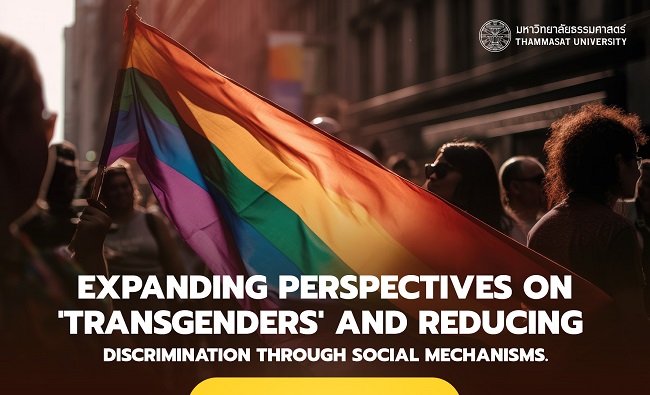
In the Pride Month Pride Festival or Pride Month in short, Thammasat University invites everyone to expand their perspectives on 'transgenders' or T in the LGBTQIA+ with Professor Kate Krangphiboon, a lecturer at the Faculty of Social Administration, Thammasat University to unravel the image of transgenders in Thai society and propose a policy to promote gender equality.
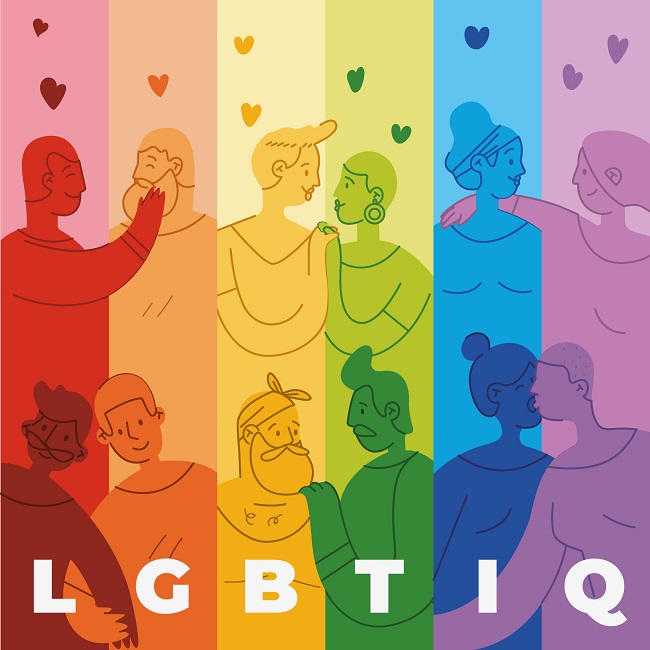
'Trans', short for ‘transgenders’ is a term used to define people who transcend their gender identity from their birth gender to their preferred gender identity. In Thai society, it is considered a newly initiated word that is still not widely used, therefore a number of people may be wondering what is 'trans'?

Professor Kate explains that 'trans' literally means ‘crossing’, but here it is the crossing in terms of gender expression, gender identity and sexual orientation. Thai society has already used the definition to refer to people who are transgenders. For example, the word ‘transgender woman’, however the meaning has evolved until the word ‘transgenders’ is used to describe such groups of people today.
Transgender was initially translated as transgender woman, transgender man, but the use of those two terms may have a meaning that is difficult to understand and not comprehensive enough. Hence, the use of the term 'transgenders'.
“The meaning of the word 'trans' is the big identity umbrella, regardless of what kind or type of transgender you are, there is no fixed requirement that only the ones conducted sex reassignment surgery be required to be called a trans. Therefore, the characteristics of transgenders, whether the dress, expression of gender, body modification, use of hormones, etc. All these traits fall under the term ‘trans’ or ‘transgenders’,” Professor Kate said.
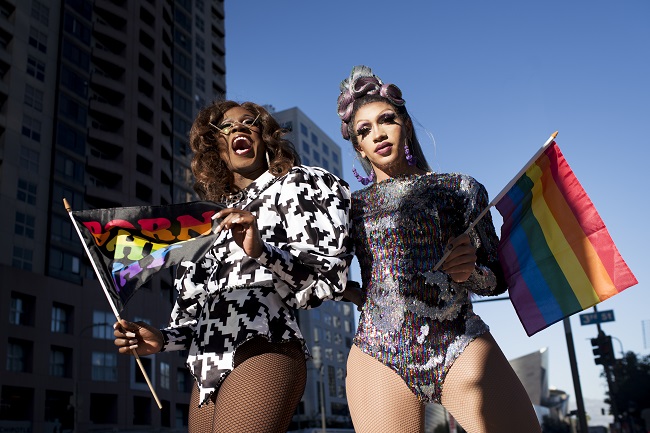
The problem of 'transgenders' in Thai society
The nature of transgenderism contradicts the beliefs about gender in society. Professor Kate explains that society has a framework for how women or men should be. It is these transgenders outside the gender box that causes 'transgenders' to be stigmatized, perceived otherwise, and rejected at the level of family, community, society, even social institutions. The hardest part is that it in the end leads to discrimination.
Problems range from acceptance in the family, institution and workplace. The lack of acceptance in these areas prevents transgenders from having the same rights and opportunities for advancement as others. For example, use of prefixes that even at present, despite transgendering to a specific gender but still not being able to exercise the right according to the gender we have chosen to be. The problem is that the documents that appear with the titles do not correspond to the gender identity, and so having to prove identity is regarded as a problem.
Stigma and discrimination mostly are rooted directly from an attitude which still reproduces that stereotype idea. For example, when talking about transsexuals, most will have in mind the perception of people who are a joke and are thought to be a loud talker. In fact, everyone has different personalities. It doesn't always have to be that transsexuals are all like that.
"The problem solving guidelines are not to tell him/her to transform back to being a man or a woman. It is inconsistent with the principle known as ‘freedom of expression’, especially the freedom of self-expression as a gender but what actually needs to be fixed is the social mechanism or the law, ”said Professor Kate.
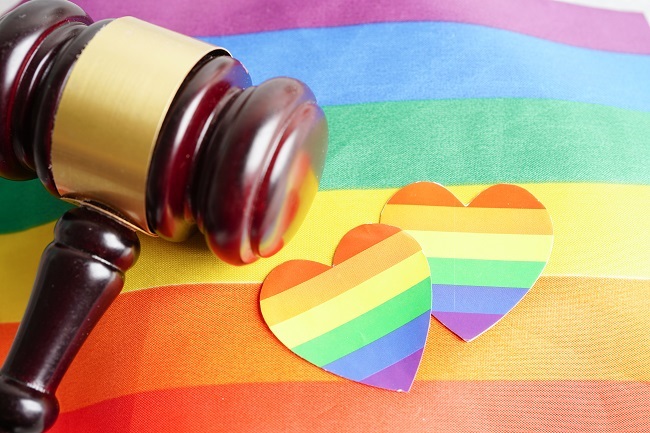
Minimize discrimination by pushing policies
In the past few years, Thai society has opened space for gender diversity, self-acceptance, and clearer vision of the problem. There is a movement to present more concrete issues of gender diversity, such as marriage equality, gender recognition or even talking about rights in the workplace. At present, there is no law recognizing the sexual rights of these people.
“What are we waiting for? At this time, Thai society is to push forward in policies and laws in what we call policy advocacy or is the network of gender diversity and people in Thai society which will help each other to push those responsible for that policy to repeal existing laws that violate human rights and let there be a new law that allows everyone to have equal access to their rights.”
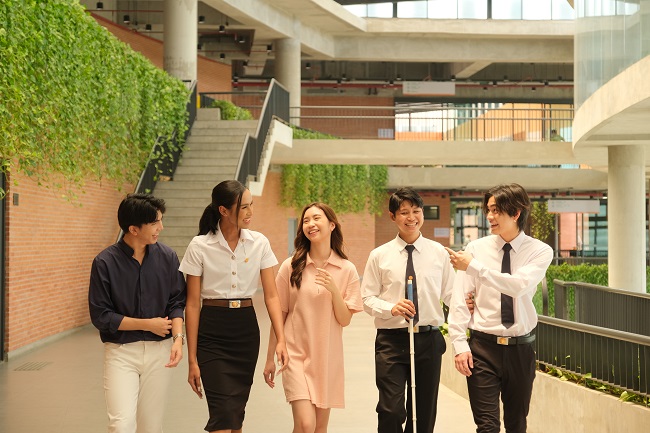
For example, at Thammasat University, everyone is able to dress freely according to gender expression. Thammasat has allowed people to dress freely for more than 10 years, however previously not included in the policy. A few years ago, Thammasat decided to amend and announce it officially, such as allowing students to dress according to their gender expression and even noun mandatory prefix. This is very meaningful because it confirms that we have mechanisms to reduce stigma. People will feel that this is a safe space that no one can deprive or infringe upon his or her permitted right to dress or express him/herself.
“Everyone can play a part in creating change. What do you think about the university or the society in which we live where there is a violation of human rights? The task is to present a correction and eliminate that transgression. It's not just the duty of any one person. But it is everyone's duty,” Professor Kate concluded.